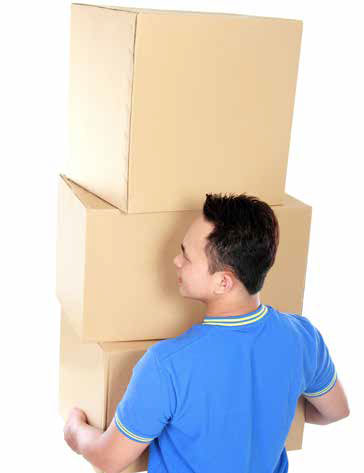
Home
About Us
Second Opinion
Media
Events
Get Care
Call us at
Contact Details
Help For Hernias

Help For Hernias
Delaying surgical repair of a hernia may lead to complications at a later stage when it worsens, so explore treatment options right away if you suspect that you have one.
Have you noticed a bulge around your groin or navel area which causes you discomfort and pain? If so, it is likely
that you have a hernia and should seek advice from a specialist right away.
Understanding hernia
Hernia is a condition that occurs due to a weakness in the muscle wall surrounding a cavity. This allows the structures that are contained within to bulge out. In addition to the process of ageing, where the muscles gradually weaken, any condition which causes a rise in pressure within the cavity will subject the muscles to extra stress and may eventually give rise to a hernia. Such activities include frequent coughing, straining at stools when constipated, difficulty in urinating, excessive exercise or lifting heavy weights.When a hernia first occurs, you may experience a little pain and feel that something has given way. Some just feel it as
muscle ache at the area. A lump which can get bigger when you cough or stand up appears. In other cases, the hernia will
appear when one stands or strains, and disappear upon lying down. The usual symptoms include discomfort, ache or pain.
An inguinal hernia, more common in men, is tissue that bulges out of a weak spot in the groin. A femoral hernia, seen frequently in women, occurs at the lower groin or at the crease of the groin. An incisional hernia is a tissue that develops at the site of a previous surgery on the abdomen, while an umbilical hernia is muscle weakness around the belly button. There are other more unusual hernias such as diaphragmatic hernia (an internal hernia at the diaphragm which allows the stomach or intestines to move into the chest) and lumbar hernias (muscle defect in the back muscles).
Nowadays, hernias can be treated through laparoscopic (keyhole) surgery. Through a small incision, the surgeon will see and repair the hernia. A specialised mesh is then used to keep the defect closed and support the muscle throughout healing. The alternative is open surgery where an incision is made to reach the area of weakness and place the mesh over the area.
The main danger of an untreated hernia is that the structures protruding through the muscle defect get stuck there. The bulge no longer disappears when lying down and cannot be pushed back. This is known as an irreducible hernia. If the hernia contains intestines, the blood supply may become compromised and the intestine wall dies, allowing the bowel contents to leak out and cause severe infection and potentially death.
An inguinal hernia, more common in men, is tissue that bulges out of a weak spot in the groin. A femoral hernia, seen frequently in women, occurs at the lower groin or at the crease of the groin. An incisional hernia is a tissue that develops at the site of a previous surgery on the abdomen, while an umbilical hernia is muscle weakness around the belly button. There are other more unusual hernias such as diaphragmatic hernia (an internal hernia at the diaphragm which allows the stomach or intestines to move into the chest) and lumbar hernias (muscle defect in the back muscles).
Seeking evaluation, treatment options
As a hernia is a physical condition, it cannot be cured by medication nor will it go away if left alone. It is likely that delaying surgical repair of a hernia will only allow the hernia to grow larger.Nowadays, hernias can be treated through laparoscopic (keyhole) surgery. Through a small incision, the surgeon will see and repair the hernia. A specialised mesh is then used to keep the defect closed and support the muscle throughout healing. The alternative is open surgery where an incision is made to reach the area of weakness and place the mesh over the area.
The main danger of an untreated hernia is that the structures protruding through the muscle defect get stuck there. The bulge no longer disappears when lying down and cannot be pushed back. This is known as an irreducible hernia. If the hernia contains intestines, the blood supply may become compromised and the intestine wall dies, allowing the bowel contents to leak out and cause severe infection and potentially death.
Preventive Measures
You can’t always prevent the muscle weakness that allows a hernia to occur but you can reduce the strain you place on your body. Some preventive measures that you can adopt include:- Stop smoking
- Maintain a healthy body weight
- Adopt good bowel habits (avoid straining)
- Avoid lifting weights that are too heavy for you
Better Care.
Constant Support.
Thank you for choosing Ho Kok Sun Colorectal.
Kindly fill up the form below and we will get back to you as soon as possible.
Kindly fill up the form below and we will get back to you as soon as possible.
Our care team will be here for you before, during, and after your procedure. We strive to provide the highest quality of surgical care to our patients in a caring, compassionate, and respectful manner to ensure your healthy recovery.

Ho Kok Sun Colorectal
Colorectal Surgeon
3 Mount Elizabeth,
Mount Elizabeth Medical Centre
#12-09, Singapore 228510
Mount Elizabeth Medical Centre
#12-09, Singapore 228510
| Tel | : (+65) 6737 2778 |
| Fax | : (+65) 6737 2389 |
| : hokoksuncolorectal@gmail.com |
| Mon - Fri | : 9am - 1pm, 2pm - 5pm |
| Sat | : 9am - 1pm |
| Closed | : Sunday, Public Holiday |
Website maintained by Activa Media. All rights reserved.
